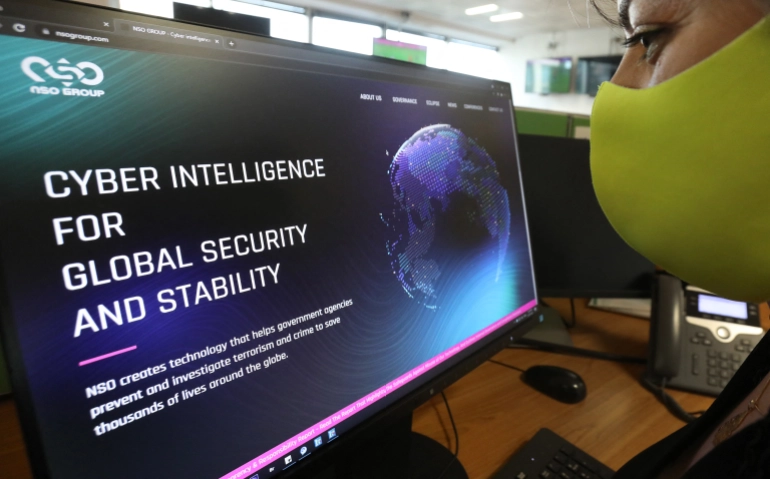As Spanish Prime Minister, Pedro Sánchez, spoke in Congress today about the use of Pegasus spyware by Spain’s intelligence services (the CNI), to spy on political figures, Amnesty International have called on authorities to urgently review the regulations to limit covert surveillance of communications.
They have also published ten recommendations aimed at finding out the details of what happened, establish remedy and accountability measures for the victims of human rights violations and prevent future arbitrary and mass surveillance.
“The intelligence services have to respect human rights standards,” said Esteban Beltrán, Director of Amnesty International Spain.
“While there is greater control in criminal cases, in this type of investigation carried out by the secret services, regulations to prevent abuses are very weak. There is risk that they can act with total impunity.”
The ten measures published today include:
the need for a thorough, independent and effective investigation into the situation the Pegasus Project revealed and active collaboration with current or future judicial processes in this case;
the need for the government to stick to its commitment to suspend the use of these surveillance instruments until they can establish an adequate regulatory framework that respects human rights;
urgent legal changes that increase judicial control of CNI investigations and the defense of those under investigation, as well as the modification of the Official Secrets Law so that possible abuses and violations of human rights cannot be protected under the secrecy considerations.
Amnesty International is calling for an exhaustive, independent and effective investigation into the cases of surveillance of Catalan and Basque figures, including the opening of a commission whose findings are made available to the ad hoc Commission of the European Parliament on infringements of European Union law associated with the use of Pegasus.
“The impunity of this surveillance also highlights once again the need to increase control and legal and operational safeguards in surveillance operations,” said Esteban Beltrán.
“Governments around the world have not done enough to investigate or stop human rights violations caused by invasive spyware like Pegasus. The use, sale and transfer of this surveillance technology must be temporarily stopped to prevent further human rights abuses.”





